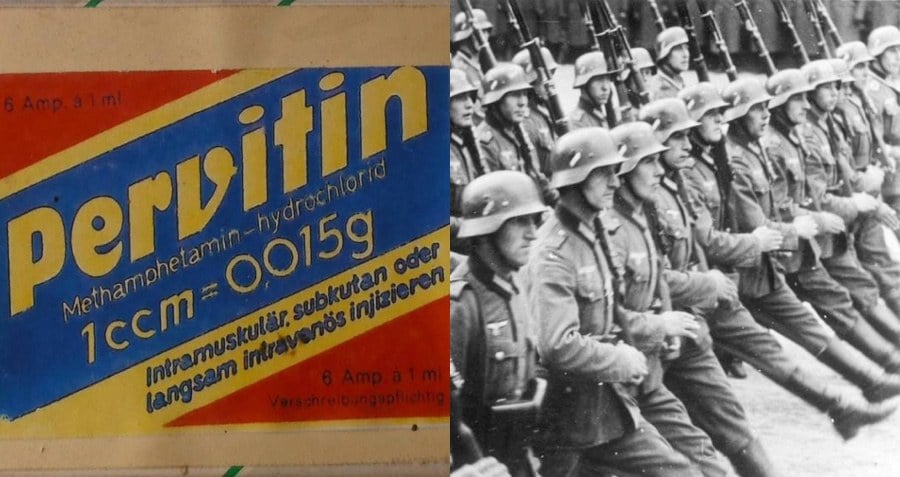Today's selection from When We Cease to Understand the World by Benjamín Labatut. The use of drugs in the last days of World War II:
"In a medical examination on the eve of the Nuremburg Trials, the doctors found the nails of Hermann Göring's fingers and toes stained a furious red, the consequence of his addiction to dihydrocodeine, an analgesic of which he took more than one hundred pills a day. William Burroughs described it as similar to heroin, twice as strong as codeine, but with a wired coke-like edge, so the North American doctors felt obliged to cure Göring of his dependency before allowing him to stand before the court. This was not easy. When the Allied forces caught him, the Nazi leader was dragging a suitcase with more than twenty thousand doses, practically all that remained of Germany's production of the drug at the end of the Second World War. His addiction was far from exceptional, for virtually everyone in the Wehrmacht received Pervitin as part of their rations, methamphetamine tablets that the troopers used to stay awake for weeks on end, fighting in a deranged state, alternating between manic furore and nightmarish stupor, with overexertion leading many to suffer attacks of irrepressible euphoria. 'An absolute silence reigns. Everything becomes alien and insignificant. I feel completely weightless, as if I were floating above my own airplane,' a Luftwaffe pilot wrote years later, as though he were recollecting the silent raptures of a beatific vision rather than the dog days of war.
"The German writer Heinrich Boll wrote letters to his family from the front asking them to send him additional doses: 'It's hard here,' he wrote to his parents on November 9, 1939, 'and I hope you understand if I can only write you every two or three days. Today I'm doing so chiefly to ask for more Pervitin ... I love you, Hein.' On May 20, 1940, he wrote them a long, impassioned letter that ended with the same request: 'Can you get hold of a bit more Pervitin for me, so I can have some in reserve?' Two months later, his parents received a single scraggly line: 'If at all possible, please mail me more Pervitin.' Amphetamines fuelled the unrelenting German Blitzkrieg and many soldiers suffered psychotic attacks as they felt the bitter tablets dissolve on their tongues. The Reich leadership, however, tasted something very different when the lightning war was extinguished by the firestorms of the Allied bombers, when the Russian winter froze the caterpillar tracks of their tanks and the Führer ordered everything of value within the Reich destroyed to leave nothing but scorched earth for the invading troops. Faced with utter defeat, staggered by the new horror they had called down upon the world, they chose a quick escape, biting down on cyanide capsules and choking to death on the sweet scent of almonds that the poison gives off.
"A wave of suicides swept through Germany in the final months of the war. In April 1945 alone, three thousand eight hundred people killed themselves in Berlin. The inhabitants of the small town of Demmin, to the north of the capital, some three hours away, fell prey to collective panic when the retreating German troops destroyed the bridges leading west, leaving them stranded on their peninsula, surrounded by three rivers and defenceless before the dreaded onslaught of the Red Army. Hundreds of men, women and children swallowing it: 'Doctors, potassium cyanide. I have tasted it. It burns the tongue and tastes acrid,' said the note found next to his body in the hotel room he had rented for the purpose of taking his own life. The liquid form of the poison, known in Germany as Blausäure or blue acid, is highly volatile: it boils at twenty-six degrees Celsius and gives off a slight aroma of almonds, which not everyone can distinguish, as doing so requires a gene absent in forty per cent of humanity. This evolutionary caprice makes it likely that a significant number of the Jews murdered with Zyklon B in Auschwitz-Birkenau, Majdanek and Mauthausen did not even notice the scent of cyanide filling the gas chambers, while others died smelling the same fragrance inhaled by the men who had organized their extermination as they bit down on their suicide capsules." |

